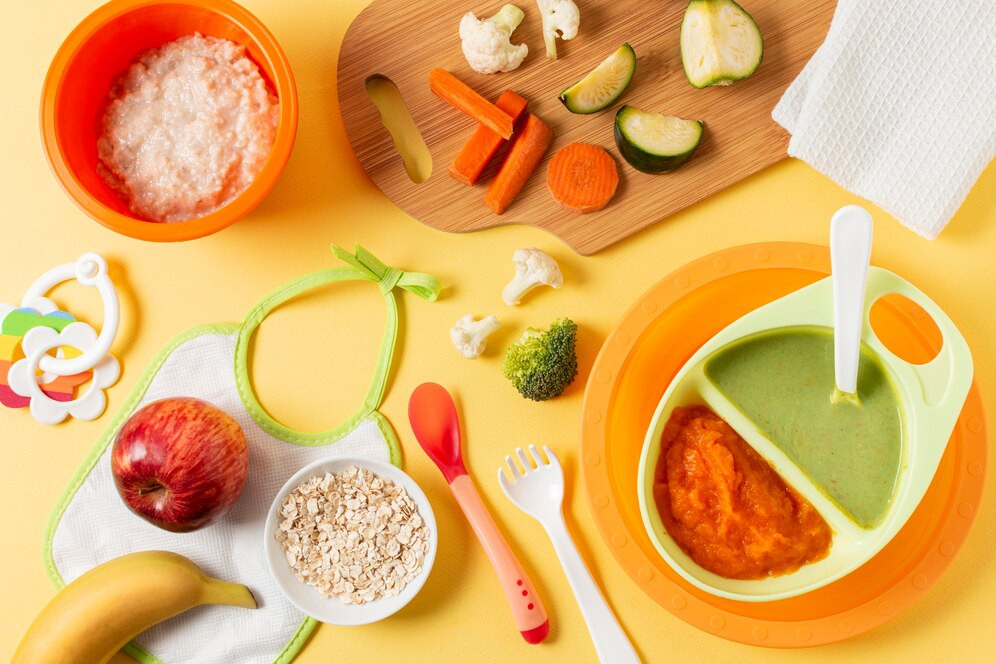On October 16, 2023, the WHO issued new weaning guidelines. In these recommendations, there are several changes from previous guidelines, especially in terms of the provision of rice and animal protein. What are the rules for weaning foods according to WHO guidelines? Let's look at the following review!
Weaning foods according to the latest WHO rules
Weaning is an additional food given to a baby to meet the baby's nutritional needs as a companion to breast milk or formula. Breast milk is the most nutritious food for a newborn. However, breast milk or formula alone cannot meet its growth and development needs. To meet their nutritional needs, babies must receive additional food in accordance with the rules.
Breastfeeding period
According to the WHO guidelines for weaning foods, breastfeeding should begin at birth and continue until the baby is two years old or older. Breastfeeding success requires support from environmental factors such as family, the workplace, and public places.
Mothers are also expected to be proactive in consulting and checking with health facilities if they encounter problems or challenges while breastfeeding. To overcome breastfeeding problems, mothers can consult with a lactation counselor or a doctor.
Breastfeeding and formula feeding guidelines
Infants aged 6–11 months who do not drink breast milk may consume formula or animal milk, according to WHO guidelines. Non-breastfed babies should begin drinking animal milk between the ages of 12 and 23 months. Pasteurized, evaporated, fermented milk, or yogurt are all options for giving animal milk. It does not recommend serving flavored or sweetened milk.
Breastfeeding activities must continue now that the baby is 6 months old and has begun eating solid foods. You can administer breast milk in accordance with the feeding schedule. Some breastfed babies may be iron-deficient and therefore underweight. For infants with iron deficiency anemia, particularly premature and low-birth-weight (LBW) infants, you should consult a doctor about iron supplementation.
Consumption of animal protein and starchy foods
The most recent complementary feeding guidelines state that children aged 6–23 months should be introduced to a variety of foods. Children need to consume animal protein on a daily basis. If your child's intake of animal protein and vegetables is limited, you can give him nuts. Fruits and vegetables should be provided every day.
Meanwhile, according to the most recent weaning food guidelines, starchy staples like rice, noodles, and flour-based foods that are commonly consumed in large quantities should be limited.
Avoid consuming manufactured food
Avoid giving children manufactured or ultra-processed foods. Sugar, salt, fat, and artificial colors or preservatives are all common additives in highly processed foods. Ultra-processed foods are primarily composed of food-derived ingredients such as fats, starches, added sugars, and hydrogenated fats. As a result, the nutritional content is extremely low for babies.
Aside from packaged foods, children should not be served unhealthy foods high in sugar, salt, or trans fats.
Implement responsive feeding
Children aged 6 to 23 months should be fed based on their hunger and satiety signals. This method encourages children to eat based on their physiological drives and developmental needs, promoting healthy growth and development.
Furthermore, responsive feeding encourages self-regulation in children and keeps them from eating too little or too much, which is good for their cognitive, emotional, and social development.
These are the majority of the recommendations for weaning foods in children aged 6 to 23 months. If you need medical advice or consultation, you can either visit a doctor or make use of the consultation features that are available in the Ai Care application by downloading the Ai Care application from the App Store or Play Store.
Looking for more information about pregnancy, breastfeeding, and the health of women and children? Click here!
- dr Hanifa Rahma
WHO. (2023). WHO guidelines for complementary feeding of infants and young children 6–23 months of age. Available from: https://www.who.int/publications/i/item/9789240081864
Nationwide Children. How Long Should You Breastfeed?. Available from: https://www.nationwidechildrens.org/family-resources-education/family-resources-library/how-long-should-you-breastfeed
CDC. Iron. Available from: https://www.cdc.gov/breastfeeding/breastfeeding-special-circumstances/diet-and-micronutrients/iron.html
Unicef. (2016). Responsive Feeding: Supporting Close and Loving Relationship. Available from: https://www.unicef.org.uk/babyfriendly/wp-content/uploads/sites/2/2017/12/Responsive-Feeding-Infosheet-Unicef-UK-Baby-Friendly-Initiative.pdf
Health Harvard. (2020). What are ultra-processed foods and are they bad for our health?. Available from: https://www.health.harvard.edu/blog/what-are-ultra-processed-foods-and-are-they-bad-for-our-health-2020010918605












